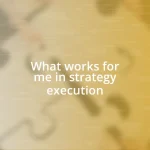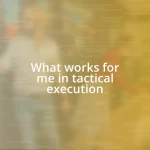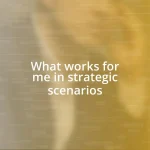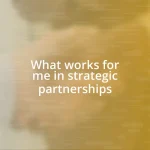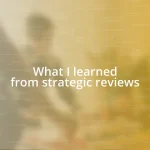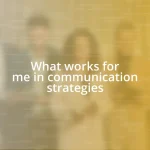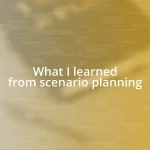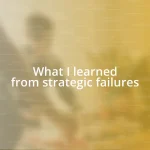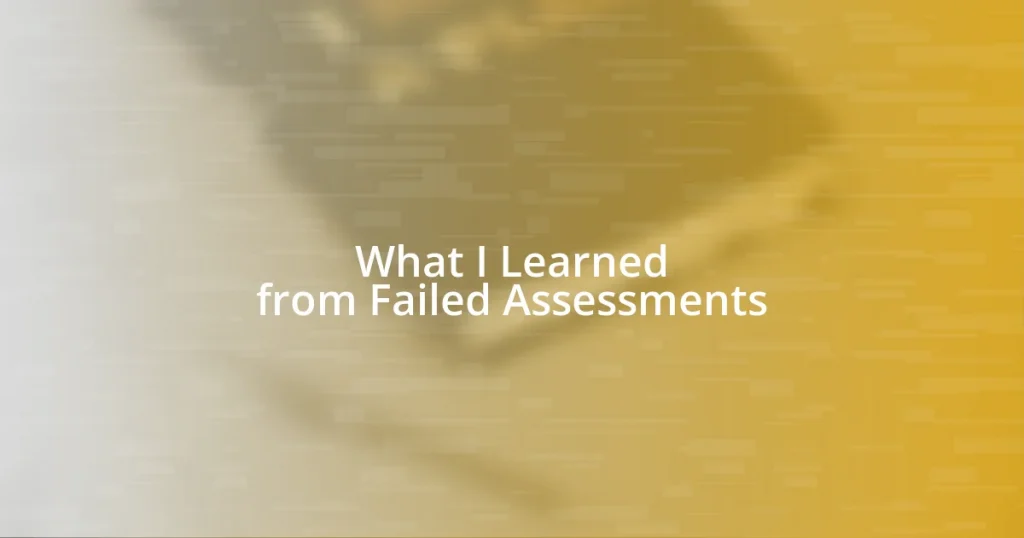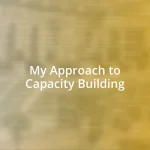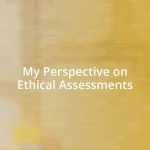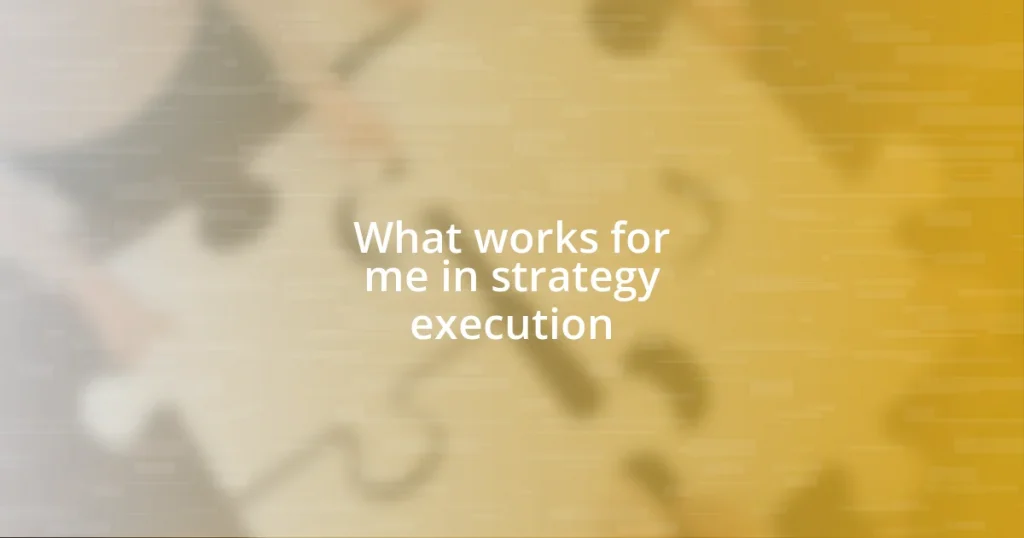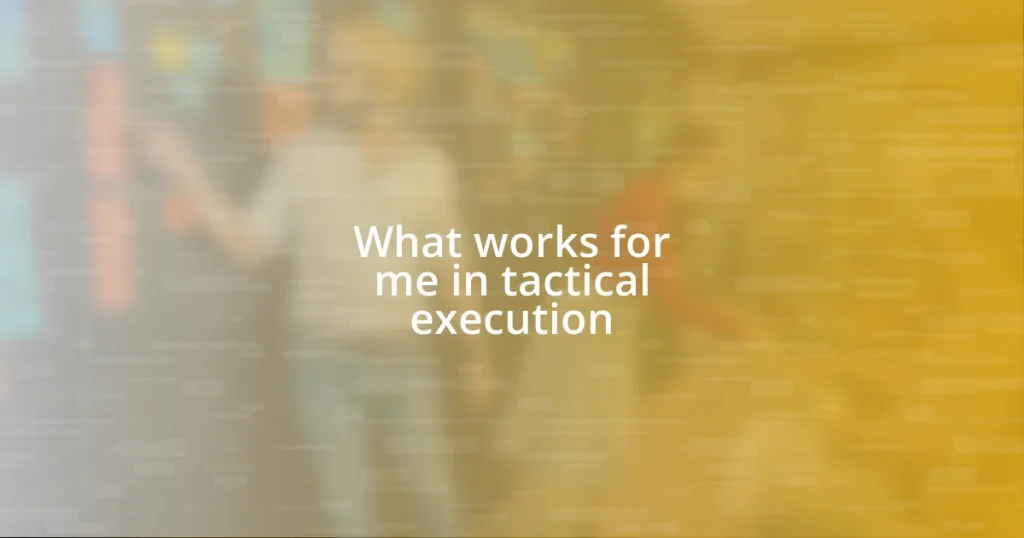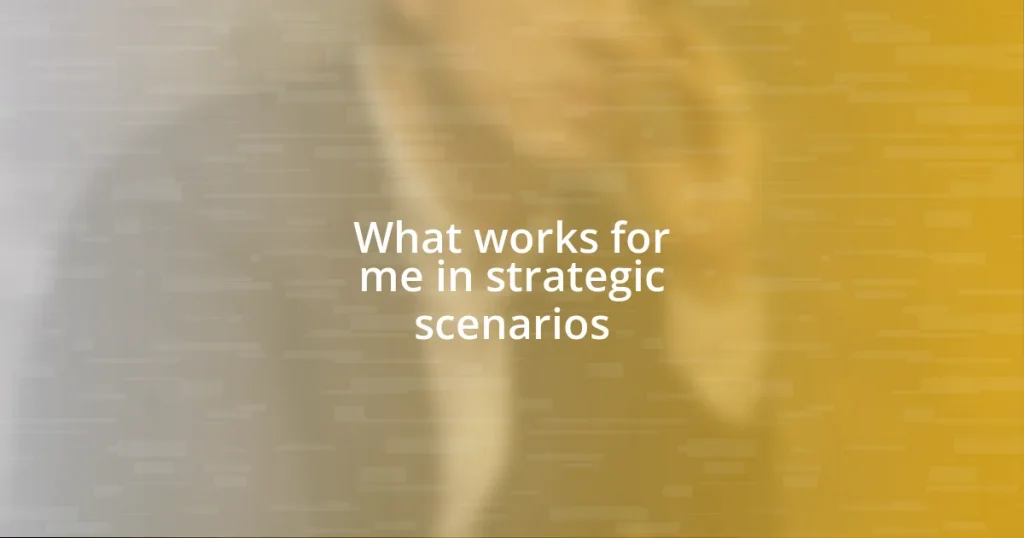Key takeaways:
- Failed assessments serve as opportunities for growth, providing insights into personal weaknesses and areas for improvement.
- Embracing feedback, setting realistic goals, and fostering collaboration are crucial strategies for enhancing performance and resilience.
- Transforming failure into success involves adopting a growth mindset, viewing setbacks as learning experiences that lead to greater achievements.

Understanding Failed Assessments
Understanding failed assessments is a journey I’ve encountered many times in my academic and professional life. I remember a project that I poured my heart into, only to receive feedback that felt crushing. Why was this so hard to swallow? It made me question not only the work itself but also my understanding of the topic.
Often, a failed assessment feels like a reflection of our capabilities, doesn’t it? I recall a time when my meticulous research didn’t translate into the grades I desired. It stung, but I learned that failure can foster resilience. I started to ask myself, “What can I do differently next time?” That simple shift in perspective opened doors to improvement.
It’s fascinating to realize that failed assessments can provide profound insights. In one instance, I discovered gaps in my knowledge that I wasn’t even aware of. I found it to be an eye-opener, teaching me that failure isn’t the end; it’s merely a signpost guiding us toward growth. Have you ever felt that sense of clarity after a setback?

Common Reasons for Assessment Failures
Many times, I’ve pinpointed poor preparation as a key reason for assessment failures. I recall cramming the night before an important exam, thinking I could rush through the material. The outcome? A disappointing score that taught me the importance of consistent studying rather than last-minute efforts. It’s a lesson that still resonates with me today.
Another common pitfall is unclear objectives. I once tackled an assignment where the guidelines were vague, leading me to focus on irrelevant details. It felt frustrating to realize that my effort was misdirected, highlighting how critical clear expectations are for successful outcomes. Clear objectives provide a roadmap, guiding our efforts more effectively.
Lastly, I’ve seen how neglecting feedback can contribute to repeating mistakes. Early in my career, I disregarded constructive criticism, believing I knew better. After a couple of missed opportunities, I learned that embracing feedback is vital for growth, transforming setbacks into stepping stones to improvement. Recognizing these factors can significantly change our approach to assessments.
| Common Reasons for Assessment Failures | Personal Experience |
|---|---|
| Poor Preparation | Crammed for an exam last minute; disappointing score taught me the value of consistent study. |
| Unclear Objectives | Focused on irrelevant aspects due to vague guidelines, highlighting the need for clear expectations. |
| Neglecting Feedback | Ignored constructive criticism early in my career, leading to missed opportunities and the importance of embracing feedback. |

Identifying Personal Weaknesses
Identifying personal weaknesses is crucial for growth, especially after experiencing setbacks. I vividly remember a time when I was so confident in my presentation skills, only to be met with a wave of critique. That moment was humbling; it forced me to confront my tendency to gloss over the preparation phase. Reflecting on that, I realized my understanding of my weaknesses was limited until that painful feedback nudged me into action.
Here are some common personal weaknesses I’ve recognized in myself:
- Rushing through preparation: I often thought I could wing it, only to learn the hard way that solid preparation makes all the difference.
- Overconfidence in my knowledge: There were instances where I assumed I fully grasped a topic, leaving me vulnerable to surprises in assessments.
- Avoiding constructive criticism: In my early days, I dismissed valuable feedback, thinking it didn’t apply to me, leading to stagnation in my learning.
Digging deep into these weaknesses has been an enlightening experience. Each revelation has offered me a clearer pathway to improve and ultimately succeed.

Lessons Learned from Failure
Reflecting on my journey through assessments, I often find that failure isn’t just an obstacle but a profound teacher. I remember a group project that went terribly wrong because I didn’t communicate effectively with my teammates. Looking back, I realize that I assumed everyone was on the same page, but that assumption proved costly. Have you ever found yourself in a similar situation? Learning to foster open dialogue and regular check-ins became an invaluable lesson for future collaborations.
Another significant takeaway for me has been the power of resilience. After failing an important test, I felt defeated and overwhelmed. Initially, I questioned my abilities, but over time, I recognized that this was an opportunity to rebuild. What if failure isn’t the end, but rather a firm push towards improvement? This realization ignited a passion in me to approach challenges with renewed vigor, embracing the idea that setbacks can lay the groundwork for greater achievements.
Lastly, I’ve discovered that embracing vulnerability is crucial. Early in my academic career, revealing my struggles felt embarrassing—it seemed like admitting defeat. However, I learned that sharing my challenges not only fostered support but also blurred the lines between success and failure. It made me wonder: what if we viewed our failures as shared experiences that connect us? This shift in perspective transformed my mindset and fundamentally changed how I approach assessments, making me not just a learner but an active participant in my growth journey.

Strategies for Improvement
After recognizing personal weaknesses, implementing targeted strategies can lead to meaningful improvement. One significant approach I’ve adopted is setting specific, achievable goals after each assessment. For instance, after failing to meet expectations in a key project, I decided to break my goals down into smaller tasks. This not only made the process less overwhelming but also allowed me to celebrate small victories along the way. Have you ever noticed how these little wins can boost your confidence and motivation?
Another effective strategy has been actively seeking mentorship and collaboration. I embraced the idea that learning from others can accelerate my growth. For example, partnering with a peer who excelled in an area I struggled with opened my eyes to new methods of studying and preparing. This experience was a game changer—it reminded me that we don’t have to navigate our journeys alone. We all have unique strengths; why not leverage them?
I also found it valuable to keep a journal to reflect on my experiences and progress. Writing down my thoughts after each assessment has helped me identify patterns in my behavior and thought processes. It’s fascinating how penning down my struggles not only clarifies my feelings but also provides tangible proof of my progress. So, have you ever thought about documenting your journey? It can serve as a powerful reminder of how far you’ve come, even in moments of doubt.

Setting Realistic Goals
Setting realistic goals has been pivotal in my learning journey, especially after experiencing setbacks. I recall a time when I aimed for a perfect score on an exam without considering my preparation level. It’s no surprise that my unrealistic expectations led to disappointment. Have you ever set yourself up for failure by aiming too high too soon? I’ve since learned to set goals that match my current capabilities, which has made achieving them so much more fulfilling.
Breaking down larger objectives into practical, smaller goals has also become my go-to strategy. For instance, while studying for a difficult subject, I used to tackle entire chapters in one sitting. That approach was overwhelming and ineffective. Now, I strive to complete just a section or even a few pages at a time, allowing for breaks and time to digest the material. I can’t emphasize enough how manageable this has made my workload—plus, it feels great to check off those smaller tasks!
I’ve discovered that regular reflection on my goals is just as essential. I used to set my targets and forget about them until it was too late. Now, I take the time to evaluate my progress weekly. This reflection helps me adjust my goals if needed. It’s a bit like recalibrating a compass on a journey, right? By maintaining flexibility in my goals, I feel empowered rather than confined—an approach that keeps my motivation alive even when challenges arise.

Transforming Failure into Success
Transforming failure into success is truly a powerful process, and I’ve personally felt the impact of a change in mindset. I remember after failing an important presentation, I took it as a sign to stop shying away from public speaking. Instead, I began to analyze what went wrong and dedicated time to practice. It was like flipping a switch—embracing that failure turned my fear into a drive to improve. Have you ever felt that surge of determination after a setback?
Looking back, I realize how crucial resilience has been in my journey. When the results of a group project didn’t meet expectations, rather than pointing fingers, I gathered my team and we discussed what went awry. It became an enlightening experience, as we shared our perspectives. Together, we crafted a plan for improvement, which strengthened our collaboration and turned our next project into a success. Does it resonate with you how teamwork can transform the bitter taste of failure into a recipe for success?
As I continued reflecting on my experiences, I found that adopting a growth mindset reshaped my approach to challenges. I used to internalize failure, letting it weigh me down. However, I learned to view it as a stepping stone rather than a stumbling block. Every mistake became a learning opportunity. This shift in perspective wasn’t easy, but once I embraced it, I started to see failures not as dead ends but as valuable lessons guiding me toward greater achievements. Can you pinpoint a failure that actually pushed you to achieve something greater?
